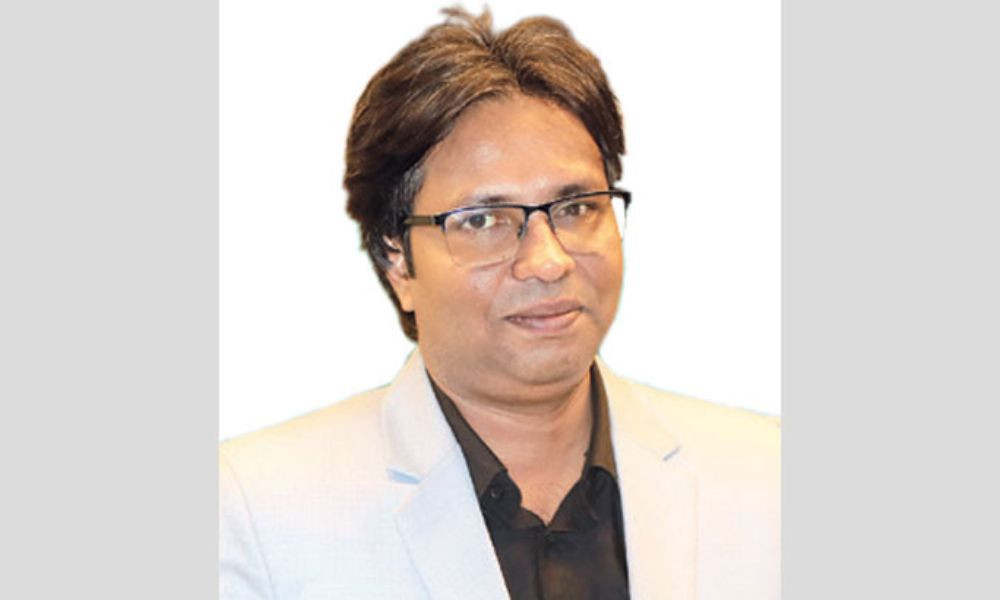
Md Joynul Abedin
The history of mediaeval Europe stands as a grim warning: when religion becomes a tool of political power, morality and human conscience are the first casualties. In those dark centuries, the Church sold “indulgences”: paid certificates promising forgiveness, salvation, and even guaranteed entry into heaven. Faith was not a matter of devotion but of fear and transaction. Centuries later, in parts of the Muslim world, most visibly in Bangladesh, the same disease has returned under a new mask. The faith of the common believer is being commodified once again, this time through the language of politics. When a section of Jamaat-e-Islami leaders whisper from door to door, “If you vote for the scales (the electoral symbol of Jamaat), you will go to heaven”, the echo of mediaeval corruption rings unmistakably through the air. The pulpit has been replaced by the campaign stage, but the fraud remains the same.
Islam, as a faith, does not bargain in paradise. Neither the Qur’an nor the Hadith offers salvation in exchange for political allegiance. The Prophet Muhammad (PBUH) never guaranteed heaven to his followers in return for a single deed — not even to his closest companions — but, to attain it, he showed the way: believing and doing righteous deeds, which does not include voting for a particular political party no matter what ideology the party may have. How, then, does a political party dare to make such claims? To sell paradise as an election slogan is not only a betrayal of Islamic ethics; it is a moral and intellectual obscenity.
Bangladesh’s is a democratic electoral system that does not have any connection with religion, and Jamaat is going to partake in that election. If Jamaat really has a bottled-up desire to establish a Sharia-based governance system or a state based on Islamic values, in exchange for which they can sell tickets to heaven, the party should shout out loud about its intention and process. What form of Sharia does it envision? How will the rights of women, non-Muslims, and dissenters be protected? What will the economy, the legal structure, and the civic institutions look like? Without answering these questions, simply showing the lure of paradise is a mere deception, an abuse of religious sentiments, an insult to the thoughts of the people and most clearly a fraud, which was evident in Shibir’s relaxation of the dress code in the selection of female candidates in student union elections.
History has shown time and again that when politics is done in the name of religion, religion itself is ultimately harmed. The Reformation movement that took place in Europe against the dominance of the church was essentially a rebellion against such deception and abuse of power.
Besides, Jamaat’s latest manoeuvre, courting Hindu voters and incorporating “non-Muslim supporters”, is being paraded as a gesture of tolerance and inclusivity. In reality, it is a cynical political performance, not a moral awakening. The party’s constitution leaves no place for non-Muslims in leadership or policymaking, and thus the so-called inclusion of non-Muslims is purely symbolic: an ornamental inclusion meant to seduce, not empower. To call this “coexistence” is to mock the word itself. Jamaat is exploiting the insecurity of minority communities, offering them false assurances of safety while cashing in on their fear. This is psychological manipulation masquerading as political compassion. The cruel irony is unmistakable: the very organisation long accused of complicity in minority persecution now pretends to be their saviour.
This duplicity must be seen against the current political reality of Bangladesh. The uprising that ended the Awami League’s authoritarian grip in July 2024 was not merely a struggle against a regime; it was a declaration of civic rebirth. The blood, sweat and courage of students and citizens reignited the idea that democracy is not a ritual of voting but is the collective consciousness of a free people. But what good is that victory if politics again descends into manipulation, trading votes through religious blackmail, emotional seduction and empty slogans? If the same old demons return in new disguises, then the sacrifices of the people will have been in vain.
Democracy does not mean just a change of ruler but freedom of thought, the right to expression and accountable politics. The interim government that came to power after the fall of the dictatorship had the responsibility of creating a new political culture where citizens would be the owners of the state and voters would be thoughtful decision-makers. But if religion were to be entangled in political circles again, the future of democracy would once again be plunged into darkness.
Bangladeshi society is now at a crossroads: one way will lead to the dream of freedom from the oppressive policy of one-party rule, and the other to the resurgence of the politics of religious emotions. To survive between these two dangers, our democracy must be strengthened not only on an institutional but also on a philosophical basis, upon four unshakeable pillars: public participation, freedom of thought, moral leadership and transparent governance.
Religious values can and should inspire personal ethics, but once they are turned into electoral weapons, both religion and democracy rot from within. The slogan “Vote for Heaven” is not faith; it is heresy. It corrupts the sacred and insults the secular. Bangladesh does not need merchants of paradise; it needs guardians of truth. Because paradise is not found in a ballot box, and democracy does not live in fear.
_____________________________________
The writer is Editorial Assistant at the Daily Sun


